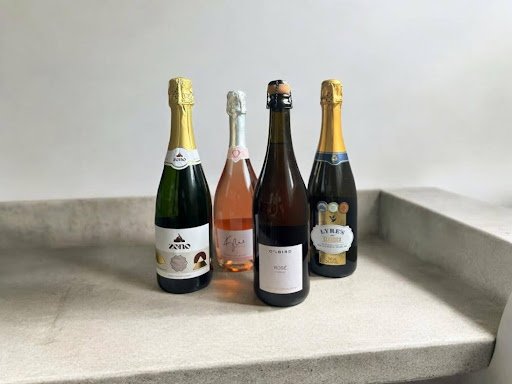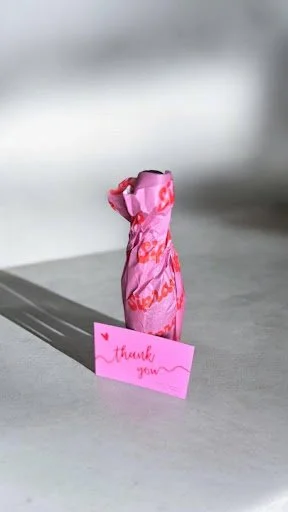Redefining Sobriety: How Anna-Louise Cumming´s Journey Sparked the Creation of Siprano, the Go-To Non-Alcoholic Wine Brand
Anna-Louise Cummings’s journey to sobriety was far from linear—it was a transformative experience that reshaped her life in unexpected ways. Once known as the ‘party girl,’ Ana found herself questioning her relationship with alcohol during the pandemic, ultimately deciding to leave it behind to pursue a more fulfilling life. This shift not only changed her personal trajectory but also inspired the creation of Siprano, a premium non-alcoholic wine brand that is breaking down stereotypes and setting new standards in the industry. Through Siprano, Anna is on a mission to prove that sobriety doesn’t mean sacrificing sophistication or enjoyment, but rather, embracing a vibrant, empowered lifestyle.
Nicolle: Can you share more about your journey to sobriety and how it inspired you to create Siprano?
Anna: My journey to sobriety was a gradual shift in mindset. I’ve always loved wine—it felt like it was almost part of my personality, being the ‘party girl’ type. During COVID, I was living with friends and, like many people, I began drinking more out of sheer boredom. That experience made me reassess why I was drinking in the first place. Often, it was just to fill a void or to give myself a bit of a confidence boost.
Over time, I realised I wanted to stop drinking altogether, but I couldn't quite imagine how I’d fit into society as someone who doesn’t drink. I worried a lot about seeming boring or being left out of social situations. But then one day, I thought about the kind of person I wanted to be, and it dawned on me that if I wanted to achieve my goals, alcohol was the one thing that had to go.
As for Siprano, it came from my search for alcohol-free wine. I loved wine when I was drinking, and when I looked for non-alcoholic options, I struggled to find good ones. I started documenting my taste testing to find the best ones on the market. Talking to others in the sober community, I realised they were also keen to find good alcohol-free wines, so I initially created the site as a blog to help others discover the best options available. There's still a lot of stigma around whether alcohol-free wine can be nice, but there are some incredible brands out there.
Nicolle: What were some of the biggest challenges you faced when developing a premium, non-alcoholic wine brand, and how did you overcome them?
Anna: When I started Siprano, my background was in advertising and UX design, so I found the logistics and supplier side of things quite challenging. Dealing with delicate glass bottles and understanding all the legal requirements for shipping them was a steep learning curve. I had to dive deep into research to get a handle on it. I also wanted to learn as much as possible about the wine itself because, while I loved it as a consumer, I had never worked in the industry.
To overcome these challenges, I reached out to as many people as possible. Every time an opportunity came up to speak to someone who could offer insight or advice, I said yes—even when it felt intimidating. It’s been surprising how many people are willing to help. I think it's really important to know your strengths and weaknesses when starting a business, and not be shy about admitting the areas where you need help. You’re not expected to know everything from the start.
Nicolle: Siprano is focused exclusively on non-alcoholic wines. How do you curate your selection, and what criteria do you use to ensure your wines meet your high standards?
Anna: Curating the selection is an ongoing journey of tasting all the alcohol-free wines available, and there are always new releases coming out! I also talk to the sober community and get their opinions, but I won’t add anything to the site that I don’t personally love. Tastes vary so much, so we follow a similar approach to traditional wine brands where users can filter by region or grape, making it easier for them to find a wine they’ll enjoy. I also use a detailed spreadsheet with a complex rating system that scores each wine on various aspects, from flavour profiles to packaging. This helps ensure we're offering high-quality wines that meet our standards.
Nicolle: Can you elaborate on the role the sober community plays in your brand, particularly in the taste-testing and selection process?
Anna: I’ve loved getting to know the sober community through Instagram and events with groups like The Sober Girl Society. It’s been great to get feedback directly from them about particular wines. I'm also planning to host a couple of wine-tasting events in London, which is still a work in progress. A specific example of how community feedback influenced Siprano is when people mentioned they were struggling to find good alcohol-free red wines. After launching, I received a lot of requests for more red wine options on the site, so I’ve been focusing on expanding that selection.
Nicolle Your brand targets women aged 18-70ish. How do you tailor your products and marketing strategies to appeal to such a wide demographic?
Anna: It's an interesting challenge because I don’t actively target a specific age range. I want Siprano to be a place for anyone who doesn’t drink wine, whatever their reason—whether it’s due to pregnancy, health reasons, menopause, or simply a choice to cut down on alcohol. Initially, with all the news about Gen Z drinking less, I thought our audience would skew younger, but the analytics have shown a predominance of slightly older customers. It’s fascinating, and I wonder if it’s because Gen Z might not be looking for alternatives in the same way that Millennials or Gen X are. As for packaging, our design does lean more towards a feminine aesthetic. I found that a lot of competitors in the alcohol-free space felt quite masculine, especially those focusing on beers, so this was a deliberate choice.
Nicolle: Siprano offers a quiz that matches consumers with wines suited to their taste preferences. How did you develop this tool, and how has it been received by your customers?
Anna: Some of my friends in the sober community have never drunk alcohol, and I realised it must be even harder for them to choose an alcohol-free wine. I wanted to create a tool that would cater to everyone, even if they had no previous experience with wine. The quiz asks broad questions, like which fruit you'd pick from a fruit bowl, so it’s accessible and doesn’t require any wine knowledge.
Developing the quiz took a while because every answer is linked to specific wines. For instance, if someone chooses strawberries as their favourite fruit, the quiz matches them with wines that have strawberry notes. After answering a series of questions, the quiz determines which wines align with their tastes.
Nicolle: With Siprano’s website being newly launched, what are your primary strategies for driving traffic and raising brand awareness in these early stages?
Anna: So far, I haven’t run any paid ads, everything has been organic. I’ve been posting consistently on Instagram five days a week since June and sharing similar content on TikTok. I’ve also started a blog on Substack and am working on optimising the site for SEO, both on-page and off-page. I’d like to do more partnerships in the future, so that is something I’m looking into at the moment.
Nicolle: How do you see the non-alcoholic wine market evolving, and what role do you envision Siprano playing in that growth?
Anna: The non-alcoholic wine market feels like it's on the brink of a boom—it's very zeitgeist at the moment, but there’s still a lot of stigma attached. I’d love to see the perception of alcohol-free wine shift because there are some fantastic options out there that taste remarkably close to the real thing. Unfortunately, many people assume all alcohol-free wine is just very sweet grape juice. With Siprano, I hope to play a small part in changing that perception by curating a list of the best wines and making it easy for people to find quality alcohol-free options. I want the brand to have a fun, lively personality, showing that being sober doesn’t mean being boring. To me, sobriety represents confidence, being a bit of a ‘girl boss,’ and making conscious choices about who you spend your time with and what you do.
Nicolle: Given your focus on delivering a premium experience, what steps do you take to ensure your subscription service consistently meets customer expectations?
Ana: Our subscription service offers customers one or four bottles of wine delivered to their doorstep each month. Subscribers can change or cancel their orders at any time, and they can get in touch with us to request more or less of their favourites. They’re also the first to hear about new releases and receive exclusive discounts.
Nicolle: What are your long-term goals for Siprano, and how do you plan to expand and evolve the brand in the future?
Anna: We have a lot of exciting plans for Siprano! We’re looking to expand into new markets across Europe, which involves navigating different countries’ legal rules around shipping alcohol-free products. We’re also continuously reviewing new releases and adding new products to our site. Hosting wine tasting events is another big goal for us, and I’m really looking forward to that. Looking five to ten years ahead, it’s hard to say exactly where we’ll be because it's still early days, and I’m trying to stay agile and open to change. However, I’d love for us to run more events, ship internationally, and, hopefully, help shift the stigma around sobriety a bit.
Check out alcohol-free wines at https://siprano.co.uk/ and follow them on IG. I am also going to be doing a review of two of their bottles in September so look out for that ☺
_
Nicolle Knapova is a 30-year-old young adult writer and freelance blogger from the Czech Republic. She has a master’s degree in Creative Writing and Publishing at Bournemouth University. She loves to write about music, books and TV shows. If she’s not writing her fan fiction, she’s writing her poetry and sharing it on her Instagram @elisecaverly.





